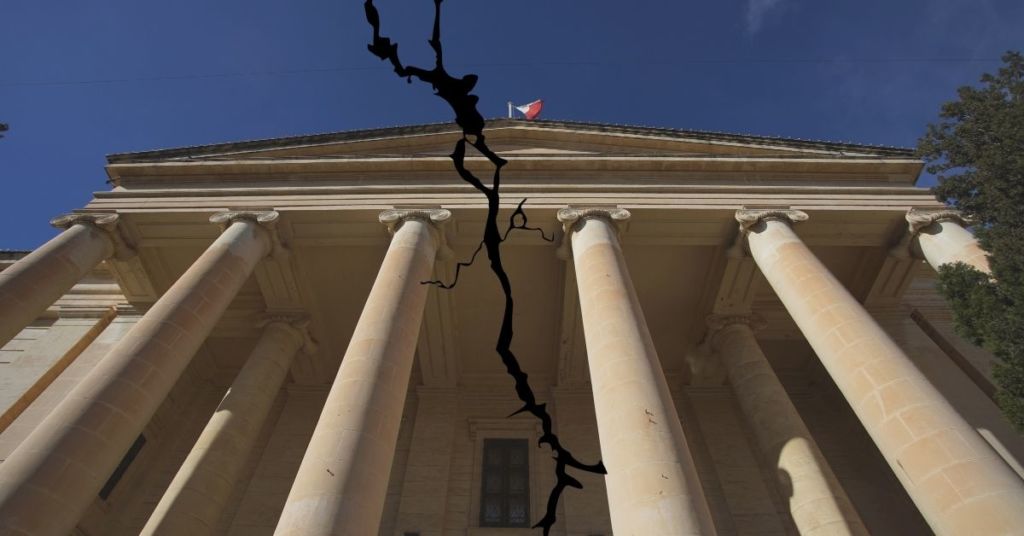Despite Young Man’s Prison Ordeal, Malta Remains At Odds With Instructions Of EU And Maltese Constitutional Court

The government has failed to apply a fix to the flawed system of State-funded lawyers despite twice being told to do so by Maltese courts as well as an obligation to do so by a four-year-old EU Directive whose deadline for implementation passed 19 months ago, Lovin Malta can reveal.
The Maltese courts spoke up after grappling with the chilling cases of Britons Elton Gregory Dsane and Usumah Hajjaj who were jailed for four years despite lack of evidence of the headline charge of conspiracy, or association as it’s known in law, to import and traffic drugs.
Lovin Malta published details of the young men’s cases yesterday, victims of a miscarriage of justice that was mostly precipitated by the flaws in the legal aid system.
In the court of criminal appeal, after the judge Consuelo Herrera reduced Hajjaj’s sentence to 18 months, she finished her judgement by “order[ing] that this judgment is notified to the Advocate of Legal Aid so that he may instruct his team of legal aid lawyers to follow the teachings of this judgment.”
Yet nothing changed in the workings of legal aid system and, five months later, after finding a fundamental breach in Dsane’s rights, Judge Toni Abela similarly ordered notification of his judgement to the “Speaker of House of Representatives and the Registrar of the Criminal Courts and Tribunals for all intents and purposes of the Law.”
Both judges pointedly remarked that Malta has failed to implement the EU’s directive.
The directive has been designed to address the kind of confusing situation that arose in the case of the two ravers, one lawyer provides advice prior to interrogation and a different lawyer meet them in court the next morning. The first lawyer told them to stay mum during the interrogation. In contrast, the second lawyer did not see the police’ evidence – as is the accused’s right – and simply took the inspector at his word in a briefing outside the courtroom.
Consultation with the second lawyer led the Londoners to decide to admit to all charges in the hope of securing a more lenient sentence, as well as serving their sentence in the UK. Instead, they got four years each, which were only reduced by half once the case’s true facts emerged in subsequent court processes.
At present, there are 18 legal aid lawyers on criminal cases, and these are on duty on a roster of 24-hour cycles. In this way, an accused on legal aid who might appear in court multiple times is likely to find a different lawyer every time, leading to confusion, conflicting advice and defence strategy, and so on.
The EU Directive addresses this flaw, with one provision stating that “one way of ensuring its [legal aid] effectiveness and quality is to facilitate continuity in his or her [the accused] legal representation”, adding that “Member States should facilitate continuity of legal representation throughout the criminal proceedings.”
The Directive also specifies that the accused or victims – victims of crime also have the right to access legal aid lawyers – should have the right to change the lawyer assigned to them, something that’s not granted at present. Another point states that “adequate training is provided to staff involved in the decision-making on legal aid in criminal proceedings and in European arrest warrant proceedings.”
Questions on whether and when the government is planning to transpose the Directive sent to the Justice Minister and his spokesperson via email remained unanswered.
Last week, on 1st January, Justice Minister Edward Zammit Lews renewed engagements for 21 legal aid lawyers (18 in Malta and three in Gozo). He also appointed two lawyers to “assist” at the Legal Aid Agency, which administers the State-funded legal representation system. Sources have told Lovin Malta that the Agency had been devoid of a lawyer prior to their appointment since the contract of the previous appointee’s term expired last April.
Victor has worked in publishing in various countries for the past thirty years. His work has been published widely, and he has churned out a varied body of work including a range of columns, essays, travel and food writing, and journalism. Back in Malta for the past several years, he has mostly dedicated himself to journalism.
Share with someone who needs to hear this story
